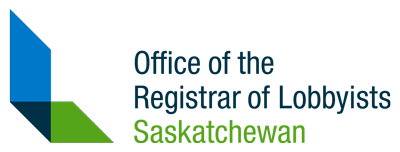News
Lobbyist Registry Launched
Released: 2016-08-22
The Lobbyists Act will be proclaimed on Tuesday, August 23, 2016. The Office of the Registrar of Lobbyists was established to administer the Act and was intended to ensure that all lobbyists who are attempting to influence decisions of provincial public office holders will register their activities associated with their lobbying efforts in the registry database.
The purpose of the Act is to enhance the integrity and accountability of government by fostering openness and transparency about who is attempting to influence decisions made by public office holders.
“It is exciting to see all the hard work come to fruition and launch the Registry,” stated Ron Barclay, Registrar of Lobbyists. “Information that will be registered by lobbyists will provide a measure of transparency for citizens and government in understanding who is attempting to influence decisions of public office holders.”
Once lobbyists begin registering information, the Registry, which is accessed through the website at www.sasklobbyistregistry.ca, will include names of lobbyists, the public office holders they are communicating with, and the activities they are engaging in to attempt to influence decisions. Citizens and other stakeholders are able to search the Registry to see what issues or subjects may be the object of lobbyists and which public office holders have been lobbied.
Lobbyists based inside or outside Saskatchewan have 30 days to register their activities. More information on the Registry and the legislation can be found on the website. Highlights of the Lobbyists Act are included in the attached background information.
Although for certain citizens the word lobby has negative implications, the origin of the word “lobby” described the anteroom of the British House of Commons where politicians met with petitioners as far back as 1640. The democratic tradition of lobbying is deeply rooted in the Magna Carta which confirmed the right of nobles to seek redress of grievances with the King and the Bill of Rights, 1689, which declares “that it is the right of the subjects to petition the King.”
We are on schedule and the timing is consistent with the experiences in other western provinces when they developed their databases.
Our mandate is about more than just following the rules. It is about doing the right thing. In other words, when applying the rules we always inquire what makes sense.
